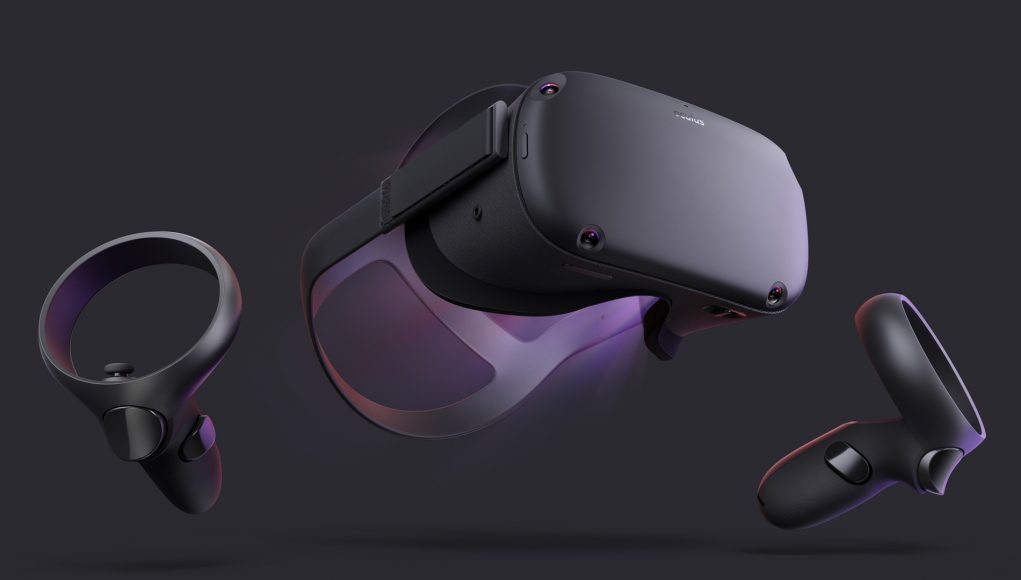Oculus today introduced Quest, the consumer version of the ‘Project Santa Cruz’ headset that the company first revealed way back in 2016. The headset is high-end standalone, meaning it doesn’t rely on a PC, but still manages to include the positional head and hand tracking that makes high-end headsets so immersive.
First introduced back in 2016 as Project Santa Cruz, the Quest brings full head and hand tracking to world of standalone headsets, something not yet available in similar offerings like the Lenovo Mirage Solo or Vive Focus (which both offer positional head tracking but not positional hand tracking).
Revealed today by Facebook CEO Mark Zuckerberg, Quest took a premier spot in today’s Oculus Connect keynote.
To boot, the headset and Touch controller combo is said to start at $400 for the 64 GB model, and launch in Spring 2019.
The Quest is said to include “the same best-of-class optics as Oculus Go with a display resolution of 1,600 × 1,440 per eye, while incorporating a lens spacing adjustment to help maximize visual comfort.” Built-in audio, similar to Oculus Go’s, will also be included, although it’s said to include “deeper bass.”
The company is calling the 6DOF optical tracking system ‘Oculus Insight’, the system that powers inside-out tracking, Guardian, and Touch controller tracking. Using four “ultra wide-angle sensors” combined with computer vision algorithms, the setup is entirely wireless and doesn’t rely on external sensors.
This story is breaking. Check back for more details as they come.







